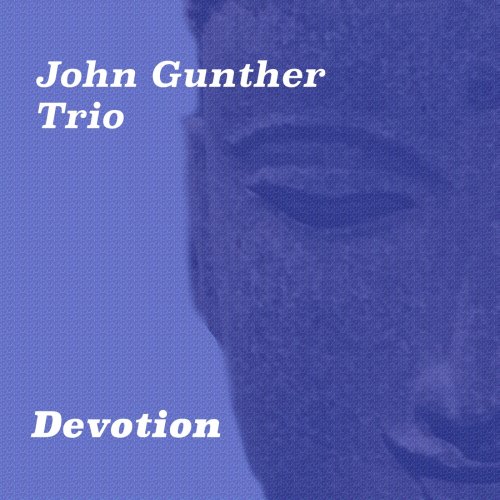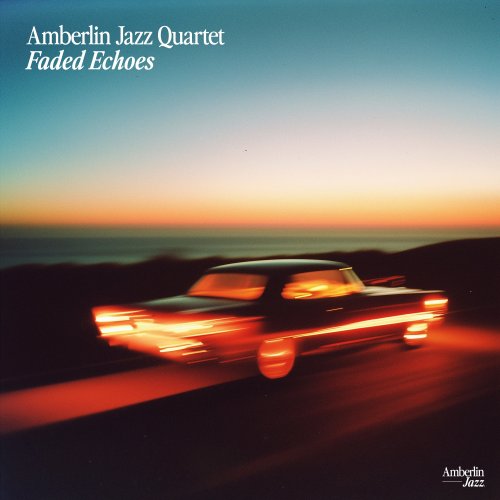Vanilla Fudge - The Beat Goes On (1968) {1998, Reissue}
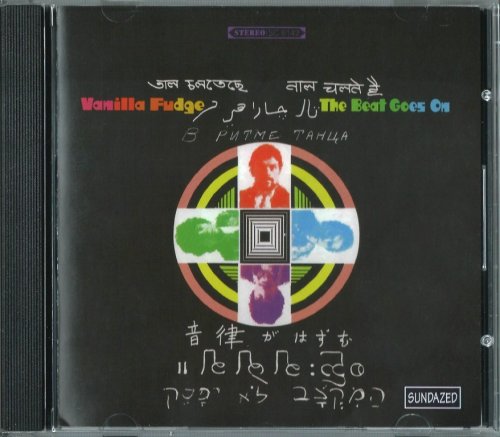
Artist: Vanilla Fudge
Title: The Beat Goes On
Year Of Release: 1968 / 1998
Label: Sundazed Music #SC 6142
Genre: Psychedelic Rock
Quality: FLAC (Img+Cue,Log) / MP3 CBR320
Total Time: 52:00
Total Size: 317 / 146 Mb (Full Scans)
WebSite: Album Preview
Title: The Beat Goes On
Year Of Release: 1968 / 1998
Label: Sundazed Music #SC 6142
Genre: Psychedelic Rock
Quality: FLAC (Img+Cue,Log) / MP3 CBR320
Total Time: 52:00
Total Size: 317 / 146 Mb (Full Scans)
WebSite: Album Preview
The Beat Goes On is the second album by the American psychedelic rock band Vanilla Fudge, released in early 1968. The album doesn't contain any real "songs", but rather a sound collage featuring many different elements: the voices of world leaders past and present, the band reciting pre-written mantras and reflections, and excerpts of songs (done "Vanilla Fudge style") by The Beatles and Sonny Bono. While not as successful as their debut album, The Beat Goes On was a moderate hit despite the band's reservations, peaking at #17 on the Billboard album charts in March 1968.
The expanded CD release of this second Vanilla Fudge album is much more accessible than the original vinyl version because of the inclusion of a number of cover tunes, most notably Beatles songs. The revealing liner notes that Sundazed project manager Tim Livingston adds to the reissues of these Atco albums helps put this influential band in a better light. The Beat Goes On is a difficult record, especially after the explosion that was their debut. The single from their previous album, Vanilla Fudge, originally charted in the Top 100 in the U.S. in 1967. (Britain was more hip to the group.) They finally hit in America in the summer of 1968, but had already begun to influence Deep Purple and the Rotary Connection, among others. The problem with this project is that they failed to influence themselves. Bassist Tim Bogert notes that "The Beat Goes On was the album that killed the band," while guitarist Vinny Martell adds "we had already started our second album when Shadow (Morton) had this other concept idea for The Beat Goes On." Morton had produced the Shangri Las, not the Beatles, and this creative effort was by a group with only two hit singles arriving on the scene around the time of Sgt. Peppers Lonely Hearts Club Band. Morton set before the boys a daunting task which needed much, much better execution. Renaissance, which they were recording simultaneous with this, at least included a Donovan tune, "Season of the Witch." The exotic wandering would have been better served by a reworking of "Strawberry Fields Forever" across a side of the disc instead of the keyboard notes which reference the tune. Even a killer guitar version of "The Beat Goes On" would have been more exciting than "18th Century Variations on a Theme by Mozart" or noodlings that can't decide if they are "Chatanooga Choo Choo" or "Theme to the Match Game." For a group of impressionable young kids out of high school, as referenced in the liners, this must've been extremely rough. The expanded CD has jam session versions of Elvis Presley's "Hound Dog" and the Beatles' "I Feel Fine," "She Loves You," "Day Tripper," "I Want to Hold Your Hand," and "You Can't Do That." Any of these extended à la "Eleanor Rigby" from their debut would be more desirable than the interview-type questions about sex; the Beatles' interest in "Indian meditation" (sitar enters here, and how would the VF know?); audio newsclips of John F. Kennedy, Hitler, and others, all a very strong argument against artistic control for some producers. Exploring the initial ideas that brought them fame was what was expected of Vanilla Fudge. What would you rather hear, readings from The Bible or the single from January 1968, "The Look of Love" b/w "Where Is My Mind"? Thankfully, Sundazed has included the Bacharach/David tune and two additional Mark Stein titles, "All in Your Mind" and the aforementioned B side, "Where Is My Mind," on the expanded Renaissance album, the real follow-up to the Vanilla Fudge debut. Historically important, listening to this archive piece is truly a labor of love, with the emphasis on labor.
~ Wiki
The expanded CD release of this second Vanilla Fudge album is much more accessible than the original vinyl version because of the inclusion of a number of cover tunes, most notably Beatles songs. The revealing liner notes that Sundazed project manager Tim Livingston adds to the reissues of these Atco albums helps put this influential band in a better light. The Beat Goes On is a difficult record, especially after the explosion that was their debut. The single from their previous album, Vanilla Fudge, originally charted in the Top 100 in the U.S. in 1967. (Britain was more hip to the group.) They finally hit in America in the summer of 1968, but had already begun to influence Deep Purple and the Rotary Connection, among others. The problem with this project is that they failed to influence themselves. Bassist Tim Bogert notes that "The Beat Goes On was the album that killed the band," while guitarist Vinny Martell adds "we had already started our second album when Shadow (Morton) had this other concept idea for The Beat Goes On." Morton had produced the Shangri Las, not the Beatles, and this creative effort was by a group with only two hit singles arriving on the scene around the time of Sgt. Peppers Lonely Hearts Club Band. Morton set before the boys a daunting task which needed much, much better execution. Renaissance, which they were recording simultaneous with this, at least included a Donovan tune, "Season of the Witch." The exotic wandering would have been better served by a reworking of "Strawberry Fields Forever" across a side of the disc instead of the keyboard notes which reference the tune. Even a killer guitar version of "The Beat Goes On" would have been more exciting than "18th Century Variations on a Theme by Mozart" or noodlings that can't decide if they are "Chatanooga Choo Choo" or "Theme to the Match Game." For a group of impressionable young kids out of high school, as referenced in the liners, this must've been extremely rough. The expanded CD has jam session versions of Elvis Presley's "Hound Dog" and the Beatles' "I Feel Fine," "She Loves You," "Day Tripper," "I Want to Hold Your Hand," and "You Can't Do That." Any of these extended à la "Eleanor Rigby" from their debut would be more desirable than the interview-type questions about sex; the Beatles' interest in "Indian meditation" (sitar enters here, and how would the VF know?); audio newsclips of John F. Kennedy, Hitler, and others, all a very strong argument against artistic control for some producers. Exploring the initial ideas that brought them fame was what was expected of Vanilla Fudge. What would you rather hear, readings from The Bible or the single from January 1968, "The Look of Love" b/w "Where Is My Mind"? Thankfully, Sundazed has included the Bacharach/David tune and two additional Mark Stein titles, "All in Your Mind" and the aforementioned B side, "Where Is My Mind," on the expanded Renaissance album, the real follow-up to the Vanilla Fudge debut. Historically important, listening to this archive piece is truly a labor of love, with the emphasis on labor.
~ Joe Viglione, All Music
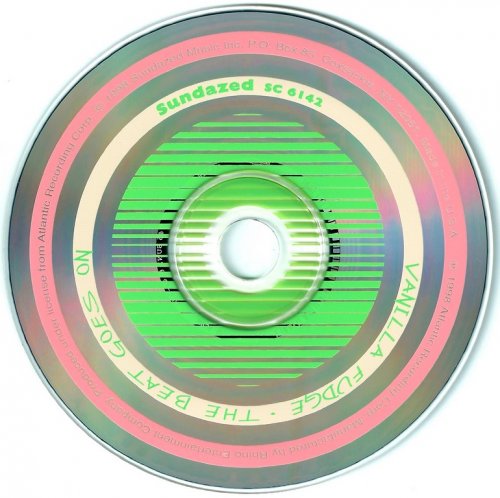
Track List:
01. Sketch [3:02]
02. Intro: The Beat Goes On [1:58]
03. Eighteenth Century - Nineteethth Century - Twentieth Century - The Beatles [6:59]
04. The Beat Goes On [1:37]
05. Beethoven : Fur Elise & Mondscheinsonate [6:36]
06. The Beat Goes On [1:10]
07. The Beat Goes On [1:03]
08. Voices in Time : Neville Chamberman - Winston Churchill - Franklin Delano Roo… [8:16]
09. The Beat Goes On [1:50]
10. Merchant : The Game is over (Vinnie) - Merchant : The Game Is Over (Tim) - Me… [9:06]
11. The Beat Goes On [2:27]
12. You Can't Do That (Bonus Track) [4:27]
13. Come By Day, Come By Night (Bonus Track) [3:27]
Personnel:
Carmine Appice - drums, vocals
Tim Bogert - bass, vocals
Vince Martell - guitar, vocals
Mark Stein - lead vocals, keyboards
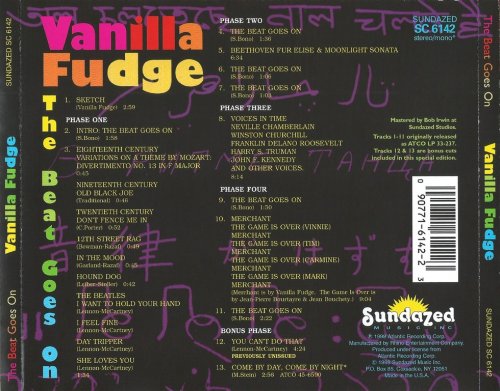

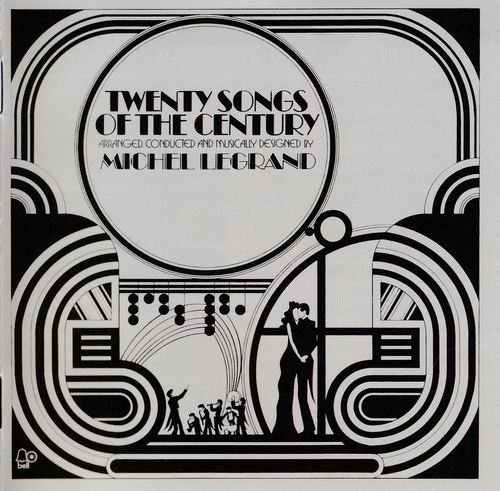
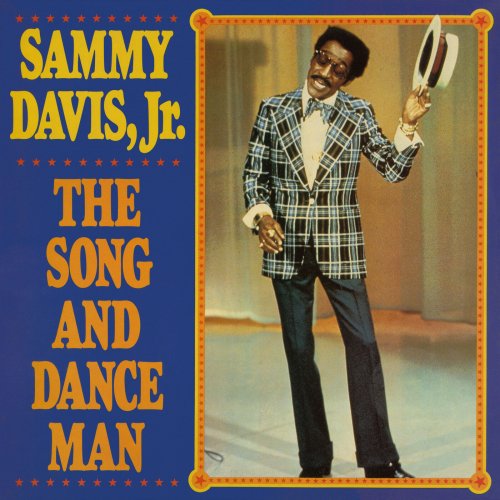

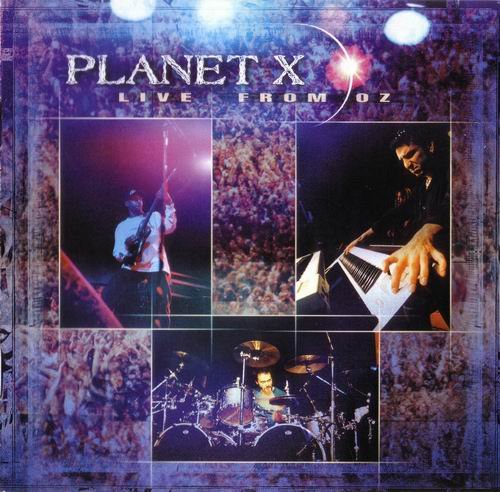
![Posey Royale - The Real Low-Down (2025) [Hi-Res] Posey Royale - The Real Low-Down (2025) [Hi-Res]](https://www.dibpic.com/uploads/posts/2025-12/1765494723_zbd6vfngwwskb_600.jpg)
